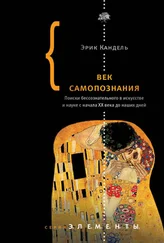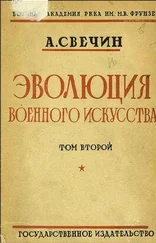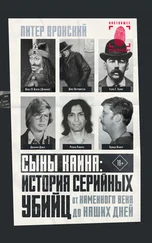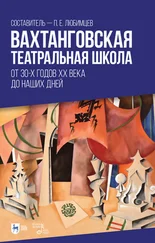Gavin Fridell, Fairtrade Coffee: The Prospects and Pitfalls of Marketdriven Social Justice (Toronto, 2007); а также: Gavin Fridell, «Fair Trade and Neoliberalism: Assessing Emerging Perspec-tives», из: Latin American Perspectives 33, no. 6, 2006: 8—28.
Цитата из: Luigi Ceccarini, «I luoghi dell’impegno: tra botteghe del mondo e supermarket», из: Paola Rebughini & Roberta Sassatelli, eds., Le nuove frontiere dei consumi (Verona, 2008), 150, 153, мой перевод.
См. с. 171—3 выше.
Сеть Norges продает некоторые товары справедливой торговли: http://www.fairtrade.at/fileadmin/user_ upload/PDFs/Fuer_Studierende/FromBeanToCup_2005.pdf? PHPSESSID=8b44ffe3cef7de0cf13d8cca979c90f8.
Латиноамериканские производители уже договаривались об экспортных квотах в 1958 году. Соглашение 1962 года, которое подписали и Соединенные Штаты, предполагало квоты на экспорт, которые должны были стабилизировать цены на кофе. В 1968 году появился специальный фонд с целью не допустить перепроизводства кофе. Соглашение было расторгнуто в 1989 году, когда страны-потребители переключились на более дешевый кофе вне картели. Краткий обзор см.: Michael Barratt Brown, Fair Trade: Reform and Realities in the International Trading System (London, 1993), гл. 7.
Otto, «Otto Group Trend Studie 2011 (3. Studie zum ethischen Konsum: Verbraucher—Vertrauen)» (2011).
Magnus Boström et al., Political Con sumerism: Its Motivations, Power and Conditions in the Nordic Countries and Elsewhere (Copenhagen, 2005); а также: Unni Kjærnes, Mark Harvey & Alan Warde, Trust in Food: A Comparative and Institutional Analysis (Hampshire, 2007).
Mel Young editorial, New Consumer , May/June 2005, 7.
См. www.brilliantearth.com; http://www.gepa.de/produkte/kaffee-tee/kaffee.html.
Kathryn Wheeler, Fair Trade and the Citizen-consumer (Basingstoke, 2012), 79–81.
Council of Europe: http://www.coe.int/t/dg3/socialpolicies/socialco-hesiondev/forum/2004monatzederschulze_en.asp.
Friedrich Nietzsche, Thus Spake Zarathustra .
Joan C. Tronto, Moral Boundaries: A Political Argu-ment for an Ethic of Care (New York, 1994); а также: Andrew Sayer, «Moral Economy and Political Economy», из: Studies in Political Economy 61, 2000: 79—104.
Amanda Berlan, «Making or Marketing a Difference? An Anthropological Examination of the Marketing of Fairtrade Cocoa from Ghana» из: Geert De Neve et al., «Hidden Hands in the Market», из: Research in Economic Anthropology 28, 2008: 171—94 171—94; см. также: Michael K. Good-man, «Reading Fair Trade: Political Ecological Imaginary and the Moral Economy of Fair-trade Goods», Political Geography 23, 2004: 891–915.
John Wilkinson & Gilberto Mascarenhas «The Making of the Fairtrade Movement in the South: The Brazilian Case» из: Laura T. Raynolds, L. Murray Douglas & John Wilkinson, eds., Fair Trade: The Challenges of Transforming Globalization (London, 2007); по размеру местных рынков см. Fair-trade Facts and Figures 2010 , figures 3.8–3.10: http://www.fairtrade.de/cms/media//pdf/ Facts_&_Figures_2010.pdf.
Luc Boltanski, Distant Suffering: Morality, Media and Politics (Cambridge, 1999).
Wheeler, Fair Trade , 173.
Около €140 в 2011 на гуманитарную помощь и €3 из расчета на душу населения на покупку товаров справедливой торговли (2009); сравните: Deutscher Spendenrat, Bilanz des Helfens , 2011, with Fairtrade Facts and Figures 2010 , fig 2.8.
Patrick De Pelsmacker, Liesbeth Driesen & Glenn Rayp, «Do Consumers Care about Ethics? Willingness to Pay for Fairtrade Coffee», из: Journal of Consumer Affairs 39, no. 2, 2005: 363—85.
Anthony Giddens, Modernity and Self-identity (Cambridge, 1991); Sarah Lyon, «Evaluating Fairtrade Consumption: Politics, Defetishization and Producer Participation», из: International Journal of Con-sumer Studies 30, no. 5, 2006: 452—64.
Micheletti, Stolle & Hoogh, «Zwischen Markt und Zivilgesellschaft: Politischer Konsum als bürgerliches Engagement»; Boström et al., Political Consumerism ; а также: Wheeler, Fair Trade , главы 5 и 7.
Cравните: Thomas L. Haskell, «Capitalism and the Origins of the Humanitarian Sensibility, Part 1», из: American Historical Review 90, no. 2, 1985: 339—61, и «Capitalism and the Origins of the Humanitarian Sensibility, Part 2», из: American Historical Review 90, no. 3, 1985: 547—66; с Richard Huzzey, «The Moral Geography of British Antilavery Responsibilities», из: Transactions of the Royal Historical Society (6th series) 22, 2012: 111—39, который подчеркивает ограничения «свободного производства» и отмечает, что даже среди британских аболиционистов лишь немногие следовали примеру Джозефа Стерджа и покупали «этически чистое» белье.
J. A. Hobson, The Evolution of Modern Capitalism (London, rev. edn 1897), 368—80.
Constantine, «Bringing the Empire Alive»: The Empire Marketing Board and Imperial Propaganda, 1926—33»; а также: Trentmann, FreeTrade Nation , 228—40.
Final Report of Mixed Committee of the League of Nations on the Relation of Nutrition to Health, Agriculture and Economic Policy (Geneva, 1937); а также: Frank Trentmann, «Coping with Shortage: The Problem of Food Security and Global Visions of Coordination, c .1890s—1950», из: Food and Conflict in Europe in the Age of the Two World Wars , eds. Frank Trentmann & Flemming Just (Basing-stoke, 2006), 13–48.
1955, «Cooperative Notes for Speakers on the Food and Agriculture Organization», цитата со с. Trentmann, «Coping with Shortage», 39–40.
John Toye and Richard Toye, «The Origins and Interpretation of the Prebisch—Singer Thesis», из: History of Political Economy 35, no. 3, 2003: 437—67.
Журналист Дик Шерпензил (Dick Scherpenzeel) призывал магазины продавать сахар по справедливым ценам на Конференции ООН по торговле и развитию (UNCTAD) в Нью-Дели в 1968 году.
Читать дальше
![Франк Трентманн Эволюция потребления [Как спрос формирует предложение с XV века до наших дней] обложка книги](/books/403210/frank-trentmann-evolyuciya-potrebleniya-kak-spros-fo-cover.webp)











